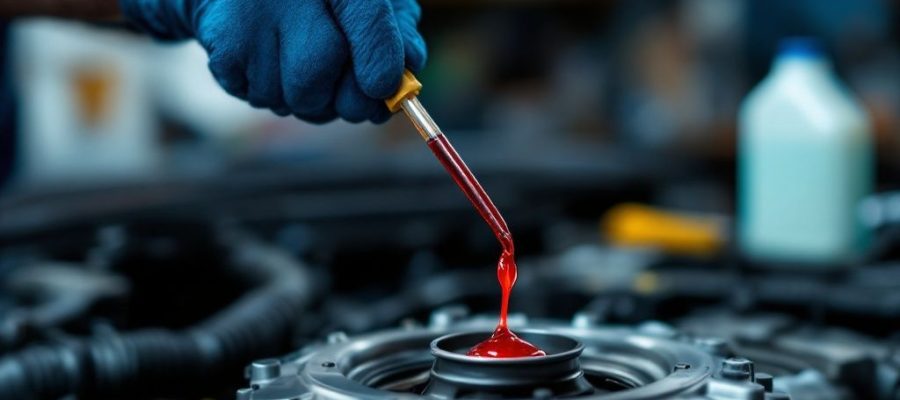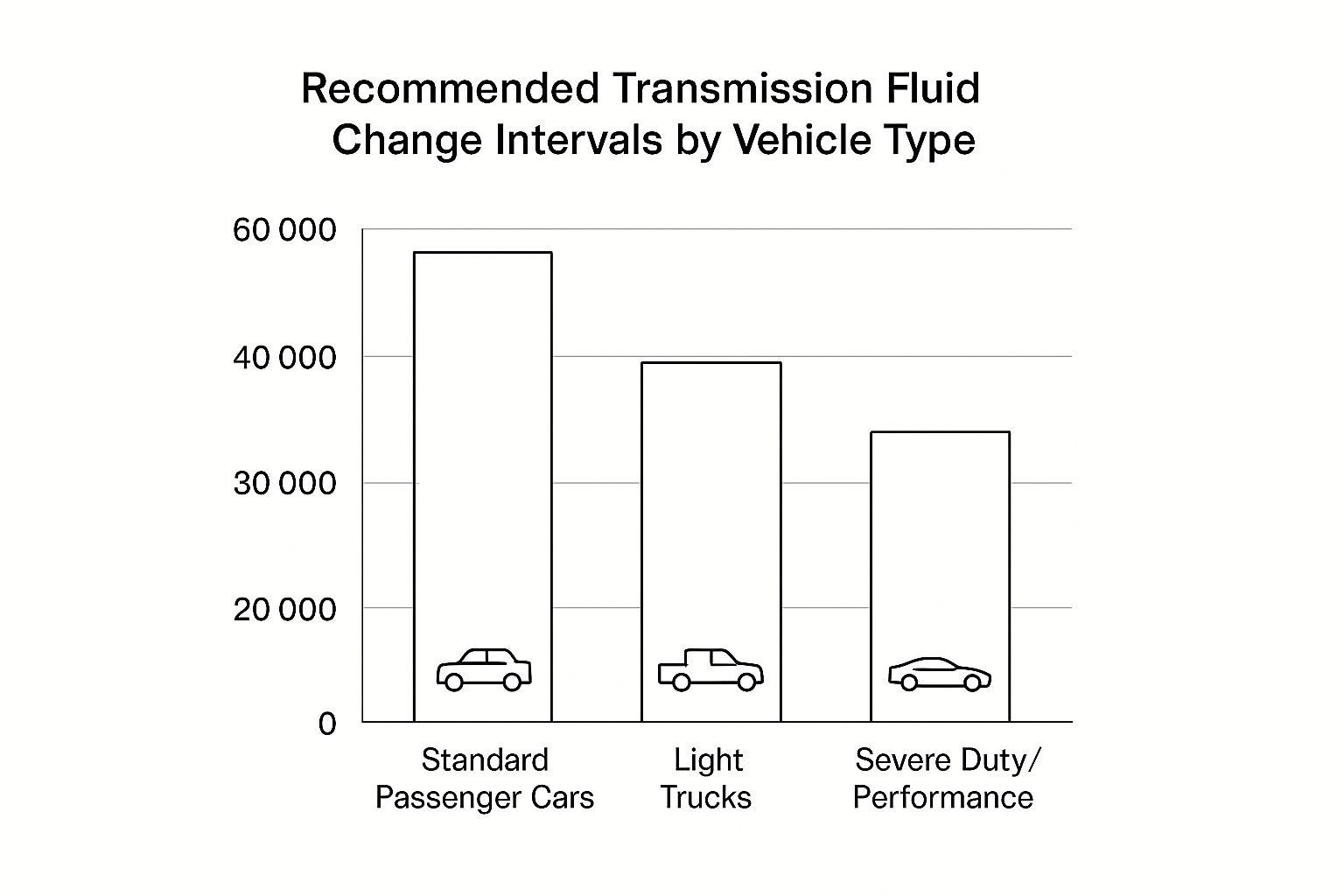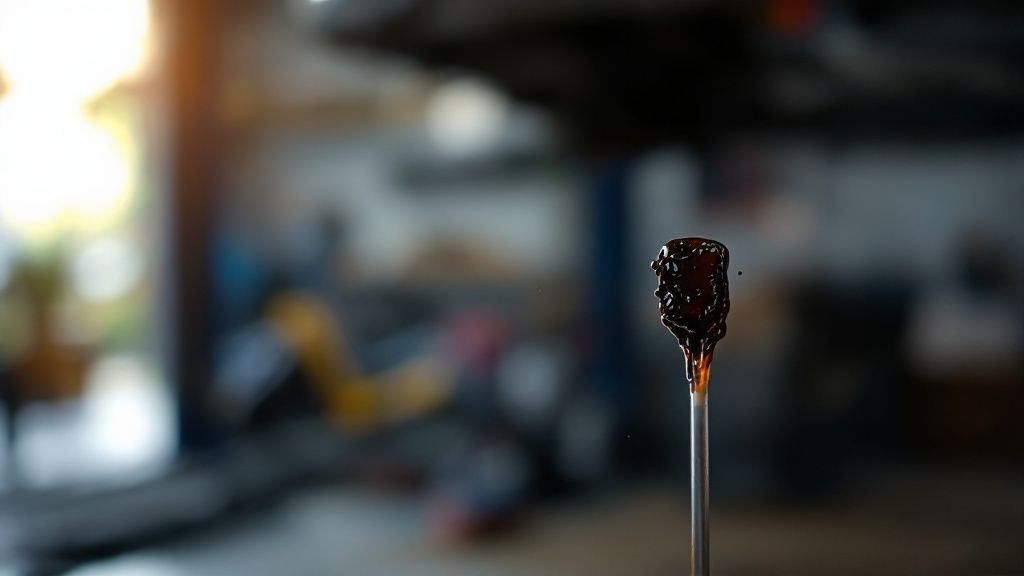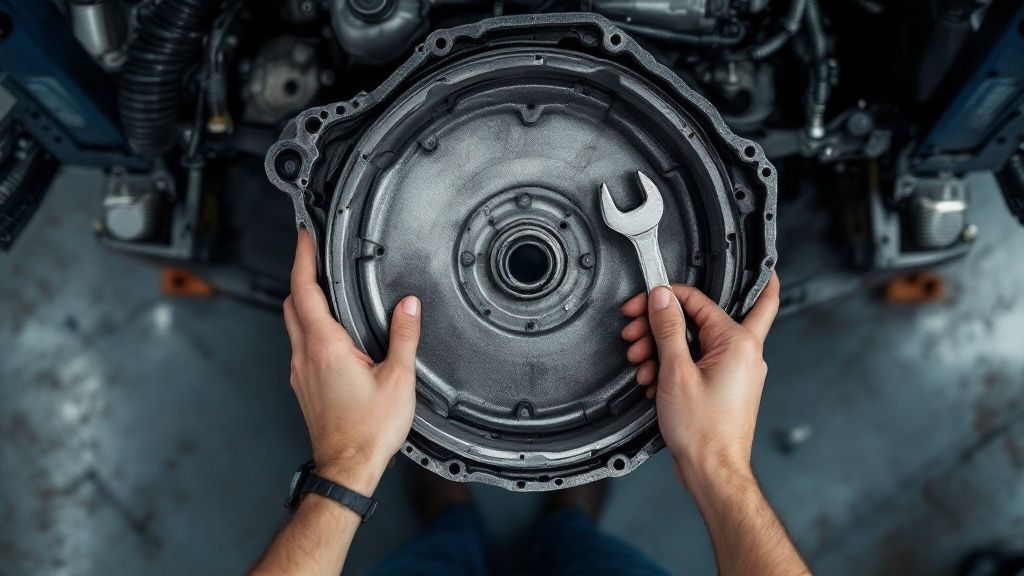

Maintaining the right transmission fluid is vital for the health of your vehicle. Good fluid lubricates, cools, and maintains hydraulic pressure, ensuring smooth shifting and preventing wear and tear. However, these properties degrade faster than you might think. Understanding your vehicle’s specific fluid change interval is key to a healthy transmission.
One common misconception is the "lifetime" transmission fluid claim. This can be misleading. While some fluids are engineered for longer life, none truly last the lifetime of a vehicle. Heat and friction inevitably break down the fluid, reducing its effectiveness and potentially leading to expensive repairs. Neglecting these changes can damage internal components like gears and clutches.
Historically, recommended change intervals have varied. Factors like transmission type and manufacturer guidelines influence the recommended mileage. Automatic transmissions generally require changes between 60,000 to 100,000 miles. Manual transmissions often need changes every 30,000 to 60,000 miles. These ranges are affected by advancements in transmission technology and the move towards customized maintenance. Continuously Variable Transmissions (CVTs) and Dual-Clutch Transmissions (DCTs), for example, often have unique and more frequent requirements. Learn more about fluid change intervals.
Your driving habits also affect how often you should change your transmission fluid. Stop-and-go city driving, towing heavy loads, or driving in extreme temperatures all put extra stress on the transmission. If you frequently engage in these driving styles, more frequent fluid changes might be necessary. The type of transmission fluid also matters. Your owner's manual specifies the correct type and specifications for your vehicle.
Beyond manufacturer recommendations, there are practical ways to assess fluid condition. Checking the fluid’s color and smell is one easy method. Healthy fluid is typically bright red and nearly odorless. Dark brown or black fluid, or a burnt smell, indicates a needed change. Another check is the dipstick test. Consult your owner's manual to locate the dipstick and understand how to check fluid level and condition.
By understanding these factors and proactively checking your transmission fluid, you can ensure its longevity and performance. This prevents costly repairs and keeps your transmission running smoothly for years to come.
Not all transmissions are the same. Their maintenance needs, especially regarding transmission fluid changes, differ significantly. This breakdown explores these variations across different transmission technologies, offering mileage recommendations and comparing conventional automatic transmissions with the more demanding CVTs (Continuously Variable Transmissions) and DCTs (Dual-Clutch Transmissions). We'll also see how driving habits and manufacturer philosophies affect optimal fluid change intervals.
Understanding manufacturer recommendations is crucial. The idea of "lifetime" transmission fluid can be misleading. While modern fluids are designed to last longer, no fluid truly lasts the lifetime of a vehicle. For example, Toyota often recommends longer intervals than BMW, reflecting different engineering and anticipated driving conditions. Ford and Honda also have varying approaches. Interpreting these recommendations within your driving context is essential. Ignoring recommended intervals, particularly under severe conditions, can void warranties and lead to premature transmission failure. Kwik Kar of Mesquite's technicians can help determine the best approach for your vehicle and driving style.
"Severe" driving conditions accelerate fluid degradation. This includes more than just off-roading or towing. Stop-and-go city driving, frequent short trips, and extreme temperatures all qualify. If you frequently tow or drive in Mesquite's summer heat, your fluid will degrade faster, needing more frequent changes than highway driving in mild climates. Consult your owner's manual or a Kwik Kar of Mesquite technician to determine if your driving falls under "severe service."
The infographic below visualizes general recommended transmission fluid change intervals based on vehicle type and operating conditions.

As shown, vehicles under heavy loads or performance driving need more frequent changes, sometimes every 30,000 miles, versus 60,000 miles for standard passenger cars.
To further illustrate these differences, let's look at a table summarizing recommended change intervals.
Transmission Fluid Change Intervals by Transmission Type
This table provides recommended fluid change intervals across different transmission types and driving conditions.
| Transmission Type | Normal Driving Conditions | Severe Driving Conditions | Special Considerations |
|---|---|---|---|
| Conventional Automatic | 60,000 – 100,000 miles | 30,000 – 50,000 miles | Consult owner's manual for specific vehicle recommendations |
| CVT | 30,000 – 60,000 miles | 15,000 – 30,000 miles | Use CVT-specific fluid |
| DCT | 40,000 – 60,000 miles | 20,000 – 30,000 miles | Check for manufacturer updates to service intervals |
Key takeaways from the table include the shorter intervals for CVTs and DCTs compared to conventional automatics, and the significant impact of severe driving conditions on all transmission types.
Different transmission types have unique fluid needs. CVTs often require specialized fluids for their belt-and-pulley systems, designed for different friction properties and thermal stability than conventional automatic transmission fluid. DCTs often demand even more frequent changes due to higher operating temperatures and pressures.
The fluid type itself matters. Some manufacturers recommend conventional fluid, while others specify synthetic or semi-synthetic. Synthetic fluids usually offer superior performance and longevity, but cost more. Kwik Kar of Mesquite can advise on the best fluid for your vehicle.
Determining the correct interval requires a balanced approach. Consult your owner's manual, consider your driving habits, and understand your transmission's specific requirements. Kwik Kar of Mesquite can help you make informed decisions about your transmission maintenance, saving you money and extending your vehicle's life.
Even if you diligently follow your car's maintenance schedule, unforeseen problems can affect your transmission fluid. This isn't always obvious, especially since many drivers research online before visiting a dealership, potentially influencing their maintenance schedule awareness. Learn more about the car buying journey online. This section highlights warning signs that, regardless of mileage, require immediate attention.
A visual check is one of the simplest ways to assess your transmission fluid. Healthy fluid typically presents a bright, translucent red hue. If it appears dark brown or black, it's a strong indicator of degradation. A burnt smell further confirms the need for a change.
This discoloration and odor stem from the fluid overheating and breaking down. This process causes it to lose vital lubricating and cooling properties.
Changes in vehicle performance can also signal transmission fluid problems. Delayed engagement when shifting, slipping between gears, and rough shifting are common symptoms.
Overheating, indicated by a high temperature gauge reading or a burning smell, can also be a serious warning. This is often directly linked to degraded transmission fluid. These symptoms tend to worsen over time, potentially leading to major transmission damage.
A simple dipstick test, explained in your owner's manual, can reveal a lot about your transmission fluid. This test checks both the fluid level and its condition. Low fluid may indicate a leak.
Kwik Kar of Mesquite’s technicians can diagnose the cause and perform necessary repairs, all backed by our 24-month/24,000-mile warranty.
The link between fluid condition and transmission health is critical. Maintaining clean, high-quality fluid is essential for protecting internal components like gears, clutches, and the valve body.
Neglecting fluid changes leads to increased friction and wear, shortening the lifespan of these parts. Regular transmission fluid changes are crucial for overall vehicle health. Neglecting them can lead to expensive repairs down the line.
Proper maintenance can extend transmission life, potentially saving you thousands of dollars. The importance of this is underscored by the growing global market for transmission fluids, projected to reach $11.85 billion by 2033. Find more information on transmission fluid maintenance.
Regularly checking your transmission fluid and addressing warning signs promptly protects your transmission and prevents costly repairs. Contact Kwik Kar of Mesquite for expert advice and service using premium parts and advanced equipment.

Saving a few dollars by skipping a transmission fluid change might seem tempting. However, this seemingly insignificant decision can lead to substantial repair bills later. Think about the difference between a $250 fluid change at Kwik Kar of Mesquite and a $4,500 transmission replacement. That's a significant gap! This section delves into the true cost of neglecting this vital maintenance task.
Over time, transmission fluid, much like engine oil, degrades and loses its effectiveness. As it breaks down, it loses its ability to lubricate and cool the complex components within your transmission. This degradation can lead to a clogged valve body. The valve body is essentially the brain of your transmission, controlling the flow of fluid to shift gears.
A clogged valve body disrupts smooth gear shifting, causing jerky movements or even a complete inability to shift. This initial problem then sets off a chain reaction. Without proper lubrication and cooling, the clutch packs, which engage and disengage the gears, can burn out. Imagine trying to ride a bike with a rusted chain – it's not going to work well, and it will cause damage.
Unfortunately, many car owners have experienced the consequences of neglecting transmission fluid changes. One Mesquite resident, for instance, disregarded their mechanic's advice and skipped a fluid change, believing their "lifetime fluid" lived up to its name. This costly mistake resulted in a complete transmission failure, requiring thousands of dollars in repairs and significant downtime.
Another case involved a local business owner who postponed fluid changes on their delivery van. The resulting transmission problems not only led to expensive repairs but also disrupted their business operations, costing them time and money.
Beyond the obvious repair costs, there are hidden expenses associated with neglecting transmission fluid changes. Failing to maintain your vehicle properly can void your warranty, leaving you fully responsible for the total repair bill.
Furthermore, a history of neglected maintenance can substantially lower your car's resale value. Potential buyers are often hesitant to purchase vehicles with potential transmission issues. A simple fluid change can protect your investment and avoid these financial pitfalls. Kwik Kar of Mesquite offers affordable transmission fluid changes using high-quality fluids. Our ASE-certified technicians utilize advanced equipment and offer expert guidance specific to your vehicle. Safeguard your investment and schedule your transmission fluid change with us today!

Regular transmission fluid changes are vital for keeping your car running smoothly. But should you tackle this task yourself, or trust the experts at Kwik Kar of Mesquite? This guide breaks down the DIY versus professional approach to transmission fluid service, helping you make an informed decision for your vehicle.
Changing your transmission fluid might seem like a simple task for a DIY enthusiast. However, various transmission types require specific tools and a good understanding of the process. You'll need the right wrenches, drain pans, and possibly a specialized pump for some vehicles. Knowing your transmission type – conventional automatic, CVT, or DCT – is essential for using the correct fluid and procedure.
Time is another factor. A DIY transmission fluid change can easily take several hours, depending on your skill level and the complexity of your car's transmission. Consider whether you have the time to dedicate to this task, or if you'd rather spend it elsewhere.
There are two main types of transmission fluid service: drain-and-fill and complete fluid exchange. A drain-and-fill only replaces part of the old fluid. Some fluid remains trapped in the torque converter and other internal parts. A complete fluid exchange, usually done by professionals with specialized equipment, replaces a much larger percentage.
Some professional machines can replace up to 95% of the old fluid. This leads to better cleaning and protection for your transmission. Kwik Kar of Mesquite uses this type of equipment for optimal results.
To help illustrate the key differences, let's look at a comparison table:
DIY vs. Professional Transmission Fluid Service Comparison This table compares the costs, benefits, and considerations of DIY versus professional transmission fluid services.
| Consideration | DIY Approach | Professional Service | Best For |
|---|---|---|---|
| Cost | Lower upfront cost (fluid and some tools), but potentially higher if mistakes are made | Higher upfront cost, but can save money long-term by preventing damage | Individuals on a tight budget who are comfortable working on their vehicles |
| Time Commitment | Several hours, depending on skill level and vehicle complexity | Typically 1-2 hours | Those with ample free time and mechanical skills |
| Tools and Equipment | Requires specific tools, including wrenches, drain pans, and potentially specialized pumps | Professionals have access to specialized equipment, such as fluid exchange machines | Individuals who already own the necessary tools or are willing to invest in them |
| Expertise | Requires mechanical knowledge and understanding of transmission systems | Professional technicians possess the necessary training and experience | Mechanically inclined individuals with prior experience working on vehicles |
| Thoroughness | Drain-and-fill method replaces only a portion of the old fluid | Complete fluid exchange can replace up to 95% of old fluid | Individuals looking for a basic fluid refresh |
| Warranty | No warranty on service performed | Typically includes a warranty on parts and labor | Individuals comfortable assuming the risk of potential issues |
This table highlights the core differences and helps visualize the best option for various situations.
Professional technicians, like those at Kwik Kar of Mesquite, have extensive training and experience working with all kinds of transmissions and fluid change procedures. They use the correct fluid type and amount for your specific vehicle, minimizing the risk of damage. They also have access to specialized equipment for a more complete fluid exchange, ensuring your transmission gets the best possible service.
While DIY might seem cheaper initially, factor in the cost of tools, the transmission fluid itself, and your time. Professional service at Kwik Kar of Mesquite is competitively priced and often balances out the DIY cost when you consider the potential for errors and the better results from professional equipment. Plus, our 24-month/24,000-mile warranty on all repairs offers added peace of mind.
The best path depends on your individual circumstances. If you’re mechanically inclined, have the necessary tools, and understand your vehicle’s needs, DIY might be a viable option. However, for many, the expertise, efficiency, and peace of mind that comes with professional service at Kwik Kar of Mesquite is the preferred choice. We offer competitive pricing, high-quality service, and a comfortable waiting area with complimentary coffee and WiFi. Contact us today to schedule your transmission fluid change and keep your car running smoothly.
Transmission fluid technology has seen significant advancements, directly impacting how often you need to change your transmission fluid. These advancements have led to a shift from conventional fluids to synthetic options, boosting both performance and lifespan. Understanding these changes is crucial for proper vehicle care.
Synthetic transmission fluids are designed to withstand higher temperatures and pressures compared to conventional fluids. This enhanced thermal stability reduces fluid breakdown, resulting in longer-lasting performance. For example, synthetics maintain their viscosity better in extreme conditions, ensuring consistent lubrication and protection for transmission components. This leads to extended fluid change intervals.
Additionally, synthetic fluids offer superior oxidation resistance. Oxidation, a chemical reaction between fluid and oxygen, creates sludge and reduces fluid effectiveness. Synthetic fluids combat this, keeping the fluid cleaner and extending its usable life. This is particularly important in modern transmissions with intricate designs and tight tolerances.
The global transmission fluid market is steadily growing, with a projected compound annual growth rate (CAGR) of 3.58% from 2025 to 2033. This growth reflects the increasing demand for high-performance, fuel-efficient, and sustainable vehicles. Modern transmission fluids are essential to meeting these demands. Find more statistics here.
Many car manufacturers advertise "lifetime" transmission fluid, leading to confusion among car owners. While these fluids are designed for an extended service life, "lifetime" doesn't actually mean the entire life of the vehicle. It usually refers to a longer interval, often 100,000 miles or more, but not indefinitely.
Even with extended-life fluids, factors such as driving habits and individual vehicle usage can influence the optimal fluid change schedule. If you perform your own fluid changes, remember routine maintenance is key to a long transmission life, similar to maintaining a fleet of vehicles. Keeping Your Drone Fleet In Tip Top Shape Essential Maintenance Practices illustrates the importance of consistent upkeep.
Today's transmissions are more complex than ever before, with increased gear counts and sophisticated electronic controls. These designs demand more from transmission fluid. For example, eight- and ten-speed transmissions produce more heat, requiring fluids capable of handling higher temperatures without breaking down.
Hybrid vehicles often have unique transmission fluid requirements. This is due to the integration of electric motors and complex powertrain systems. These specialized fluids ensure optimal performance and efficiency in hybrid applications.
Growing environmental concerns have spurred the development of eco-friendly transmission fluids. These fluids are formulated with biodegradable base oils and additives, minimizing their environmental impact. This shift towards sustainable solutions balances performance with environmental protection.
With all these advancements, it's important to stay informed. Checking your owner’s manual and consulting with professionals, such as those at Kwik Kar of Mesquite, will help you choose the correct fluid and follow the right change schedule for your car. Schedule an appointment with Kwik Kar of Mesquite here for expert advice and service. We offer competitive pricing and a 24-month/24,000-mile warranty for your peace of mind.